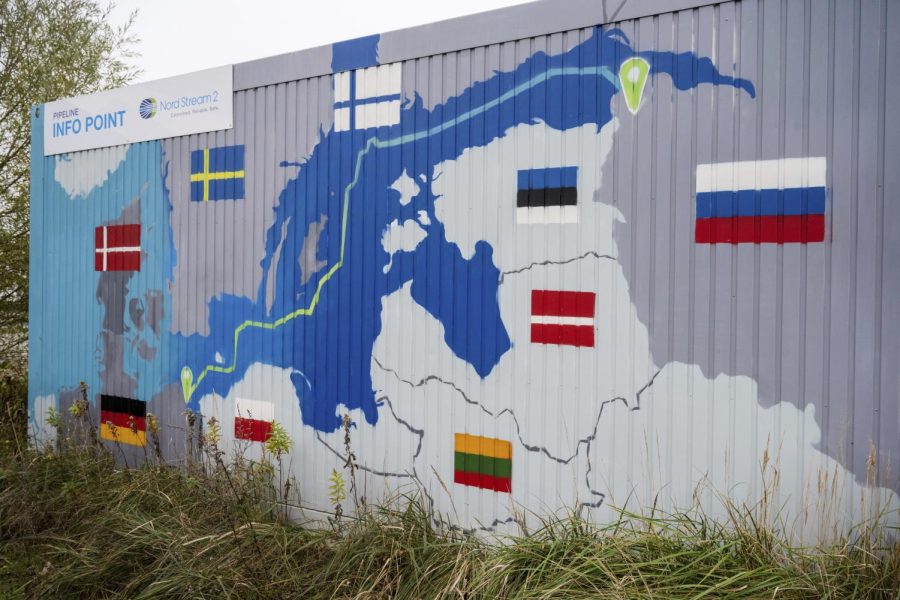Who sabotaged the Nord Stream pipelines?
A sign reading “Nord Stream 2 Committed. Reliable. Safe.” hangs above a painted map of the Nord Stream 2 pipeline from Russia to Germany at the natural gas receiving station in the Lubmin industrial estate in Lubmin, Germany, Nov. 16, 2021.
The tension in eastern Europe just went up a notch. Nord Stream One, a pair of natural gas pipelines connecting Russia to Germany through the Baltic Sea, have ruptured in what CNBC calls “the single largest release of methane in history.”
The incident was immediately suspicious. For multiple thick steel and concrete pipelines to rupture one after another is beyond coincidence. One pipeline of Nord Stream Two, which was finished but never made operational, was also breached. According to Swedish and Danish Seismic data, the ruptures were caused by powerful underwater explosions.
Björn Lund, director of the Swedish National Seismic Network at Uppsala University, said that it is “very clear from the seismic record that these are blasts” in a phone interview from NPR.
If explosives were involved, then we’re talking about a deliberate act of sabotage. The question is, who did it?
The Kremlin was quick to blame the United States and its allies. According to Democracy Now, Russian President Vladimir Putin said, “Sanctions were not enough for the Anglo-Saxons. They moved to sabotage.”
The fact that Gazprom, a Russian majority state-owned gas company, holds a majority stake in the Nord Stream pipelines supports Putin’s claim. Why would Putin blow up his own critical infrastructure? A rational leader wouldn’t dream of it, but rational leaders also don’t threaten the world with nuclear war, as Putin is known to do.
Other European nations aren’t buying Russia’s claims. Sweden has denied a request from Russian authorities to participate in the investigation of leaks that occurred in their exclusive economic zone, Reuters reported.
Additionally, Spanish Energy Minister Teresa Ribera claims that the incident is linked to Russia, according to CNBC.
Various organizations have shared theories of submarines or even divers planting explosive charges on the pipelines. Such an operation is feasible, but would be costly and difficult. Another speculative method of sabotage involves the pipeline inspection gauges which travel through the pipes. It would be trivial to attach an explosive payload to such a device and detonate the pipes from inside.
Regardless of who is responsible, the question remains as to how the attack was perpetrated.







